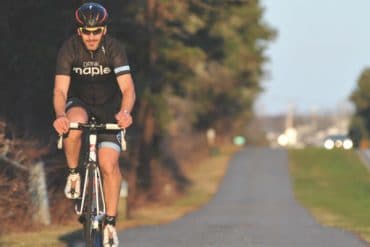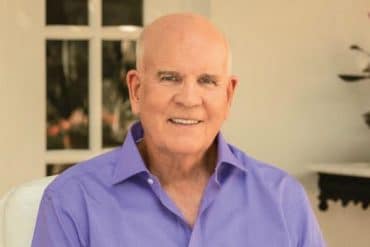Holly McGowan and A.S.A.P. Nantucket are fighting substance abuse on the island.
Opiate overdose is now the leading cause of death of Americans under the age of fifty. Last year alone, more than sixty thousand people died at the hands of this crushing epidemic. That’s more than all the American soldiers killed in the Vietnam War. On Nantucket last year, the police department responded to seventeen overdoses according to Chief Bill Pitman, with two calls resulting in fatalities. Now, with the recent spike in synthetic heroine known as fentanyl, 2017 is on pace to set a new national record in deaths. While strides are being made in closing some of the gateways to addiction, societal stigma around substance abuse continues to be a major obstacle in bringing real progress to this dire situation. And that’s what Holly McGowan is fighting to change here on Nantucket.
 “One of the biggest, hardest things for people to recognize is that substance abuse disorder is a brain disorder,” says McGowan. “It’s scientifically proven, but still there’s so much stigma and barriers to treatment.” McGowan is the president of the Alliance for Substance Abuse Prevention (A.S.A.P.) on Nantucket, which is dedicated to educating students and their families about addiction. “It’s so important for families that are impacted with substance abuse disorder to recognize that they are also ill,” McGowan says. “Your whole life gets wrapped up in helping the person with substance abuse disorder. It’s helping versus enabling, which is a tricky component for families to understand.”
“One of the biggest, hardest things for people to recognize is that substance abuse disorder is a brain disorder,” says McGowan. “It’s scientifically proven, but still there’s so much stigma and barriers to treatment.” McGowan is the president of the Alliance for Substance Abuse Prevention (A.S.A.P.) on Nantucket, which is dedicated to educating students and their families about addiction. “It’s so important for families that are impacted with substance abuse disorder to recognize that they are also ill,” McGowan says. “Your whole life gets wrapped up in helping the person with substance abuse disorder. It’s helping versus enabling, which is a tricky component for families to understand.”
McGowan has experienced the perils of addiction firsthand through various members of her own family. Since joining A.S.A.P. five years ago, she has devoted herself fully to fighting and preventing substance abuse on Nantucket. “I have never seen anyone in my life volunteering at the level that Holly does in trying to save the island from the substance abuse problem,” says Janina Kean, an addiction specialist whom McGowan brought to Nantucket to lead a number of family programs through A.S.A.P. “She’s an amazing human being.”
 For eighteen years, Kean served as the CEO of High Watch Recovery Center in Connecticut and shared her own story to save the lives of other addicts. “In my case, I was twenty-five years old living in the back of a car with active addiction,” Kean says. “I was trained as a nurse, but I couldn’t even work as one because I was so sick with addiction. I got struck sober thirty-six years ago, and I’ve been sober ever since. I’ve been able to use that horrible experience to help save other people’s lives.”
For eighteen years, Kean served as the CEO of High Watch Recovery Center in Connecticut and shared her own story to save the lives of other addicts. “In my case, I was twenty-five years old living in the back of a car with active addiction,” Kean says. “I was trained as a nurse, but I couldn’t even work as one because I was so sick with addiction. I got struck sober thirty-six years ago, and I’ve been sober ever since. I’ve been able to use that horrible experience to help save other people’s lives.”
In addition to leading a number of family programs on the island, Kean hosted a radio show on the local NPR affiliate 89.5 WNCK called “ACK Sober” that featured local islanders sharing their own battles with addiction. Kean recorded forty-eight interviews that are now available on demand on A.S.A.P.’s website. By amplifying these stories, Kean hopes to reach other Nantucketers who are quietly battling substance abuse on the island.
Nantucket resident Heather Francis was one of Kean’s guests on her radio show and attended one of A.S.A.P.’s family programs. “It was incredible,” Francis says. “I’m so passionate about addiction and recovery services, and that family program was one of the best ones I’ve ever gone to.” Now seven years sober, Francis is the director of nursing at Our Island Home and is currently studying to become a psychiatric and mental health nurse practitioner who could run her own family program on the island someday. “The family needs to recover just as much as the addict does,” says Francis, who is a mother of two. “That’s a crucial piece that people miss here.”
 Francis’s recovery from alcoholism has been reflected in inspiring athletic pursuits that have helped transform her life — mentally and physically. Now an avid runner, she has gotten fit training for road races held around New England. But perhaps most inspiring is Francis’s fearlessness in sharing her own story in an effort to combat the stigma around addiction. “We need to get the message out there that mental health and addiction don’t discriminate,” she says. “It impacts people in high, professional positions as well as those who are homeless and not working. As a health care professional, I honestly believe addiction is a disease not unlike cancer.”
Francis’s recovery from alcoholism has been reflected in inspiring athletic pursuits that have helped transform her life — mentally and physically. Now an avid runner, she has gotten fit training for road races held around New England. But perhaps most inspiring is Francis’s fearlessness in sharing her own story in an effort to combat the stigma around addiction. “We need to get the message out there that mental health and addiction don’t discriminate,” she says. “It impacts people in high, professional positions as well as those who are homeless and not working. As a health care professional, I honestly believe addiction is a disease not unlike cancer.”
A.S.A.P. is one prong of the vital services available in the community that are already beginning to improve the substance abuse situation on the island. But more funding is essential to expanding the vital services provided by A.S.A.P., which has depended on grants from the Community Foundation and other donations to keep running. Without additional support, services such as Kean’s family program will be unable to continue in the years to come. “Nantucket has seen some significant improvements in access to social and behavioral health services since this time last year,” says Chief Pittman. “I think that these community-based efforts are starting to pay off. But, we still have a long way to go before this crisis is over.”






